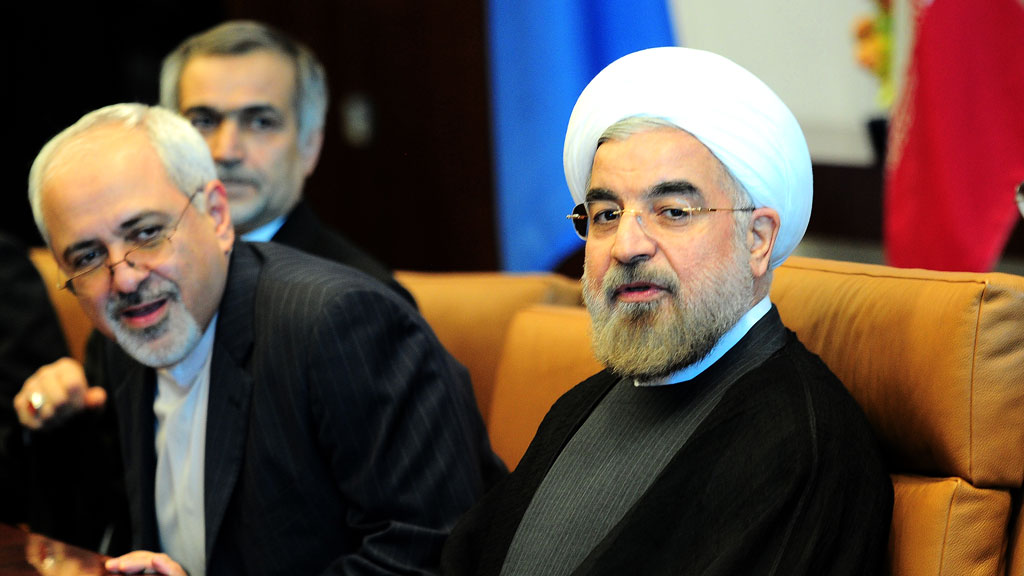Syria peace talks to proceed after Iran invite withdrawn
The Syrian National Coalition confirms it will attend peace talks in Geneva on Wednesday, after the UN withdraws its controversial last-minute invitation for Iran to attend.

The UN launched “intensive and urgent discussion” to try to ensure the Syrian opposition’s attendance at the peace talks, which are due to be held in Montreux, Switzerland this week.
An unexpected last-minute UN invitation for Iran to attend the conference threw the talks into doubt, with the Syrian opposition saying it would pull out unless Ban withdrew his offer. The opposition only confirmed its attendance after the UN withdrew its invitation for Iran to attend.
Iran and Russia are the main foreign backers of Syrian President Bashar al-Assad, and Tehran’s presence has been one of the most contentious issues looming over the first talks attended by both Assad’s government and opponents, set to start on Wednesday.
Several western diplomats told Reuters on condition of anonymity that Ban’s decision to invite Iran appeared to have been made hastily, and his advisers scrambled to prevent a collapse of the conference on Syria’s nearly three-year civil war.
The peace conference on Syria, dubbed Geneva II, has been in the pipeline for almost a year, and is finally due to begin on Wednesday in Montreux, followed by talks in Geneva, two days later.
Iran was not invited to the first Syria peace conference held in 2012, and Mr Ban said Tehran’s participation had been “one of the key issues” since then.
US: ‘the invitation must be rescinded’
The United States on Monday said Iran was not welcome at the talks unless it publicly backed an accord reached in Geneva in 2012 that calls for a transitional government for Syria.
In the a statement, the US said the UN should withdraw the invitation, unless Iran was prepared to back the Geneva communique and the main aim of the talks, which is to set up a transitional government in Syria.
“This is something Iran has never done publicly and something we have long made clear is required,” said US State Department spokeswoman Jen Psaki.
“We also remain deeply concerned about Iran’s contributions to the Assad regime’s brutal campaign against its own people, which has contributed to the growth of extremism and instability in the region.
“If Iran does not fully and publicly accept the Geneva communiqué, the invitation must be rescinded.”
However, Iran rebuffed the precondition on Monday, saying it could not accept a plan for a Syrian political transition agreed at talks in the Swiss city in 2012, the ISNA news agency reported.
“Setting such a condition to accept the Geneva I agreement for attending at the Geneva II meeting is rejected and unacceptable,” ISNA quoted deputy Foreign Minister Hosein Amirabdollahian as saying.
“Iran will attend the talks without any precondition based on an invitation by UN Secretary-General Ban Ki-moon.” Iran is a staunch ally of Syrian President Bashar al-Assad in his conflict with rebels fighting to overthrow him.
France also said on Monday that Iran should not be allowed to attend the Syria peace talks if it did not accept the creation of a transitional government with full executive powers.
Saudi Arabia, which has strongly backed groups fighting Assad’s forces, also believes Iran should not attend because of its stance on Geneva 1 and its military support for Assad, the Saudi Press Agency quoted an “official source” as saying.
Russia: ‘peace talks without Iran a hypocrisy’
However, Russian Foreign Minister Sergei Lavrov said on Monday that a peace conference on Syria held without Iran’s participation would be a hypocrisy.
He said: “The situation is unhealthy, I think. From the very beginning we have underlined that it is necessary to invite to this conference all countries, without any exclusion, that influence the situation on the ground so to speak.
“And without any doubt, Iran, like Saudi Arabia, like the Gulf countries, like Turkey, Egypt or Iraq, is one of the countries that has a direct interest in the resolving this situation without any additional damage to the stability of this most important region of the world.
“Among the countries also invited (for the talks) are Australia, Mexico, the Republic of Korea, South Africa, Japan, Brazil, India, Indonesia, and many others. So if there is no Iran in this list than I think the peace talks will resemble a hypocrisy.”
An estimated 100,000 people have died in the three-year conflict in Syria, and another two million people have fled the country.
Thirty countries had already accepted invitations to attend the Montreux meeting that precedes the talks scheduled to begin on Friday between Syrian President Bashar Assad’s delegation and Syrian opposition groups at the UN headquarters in Geneva.
Mr Ban said on Sunday he had invited a further 10, including Iran.